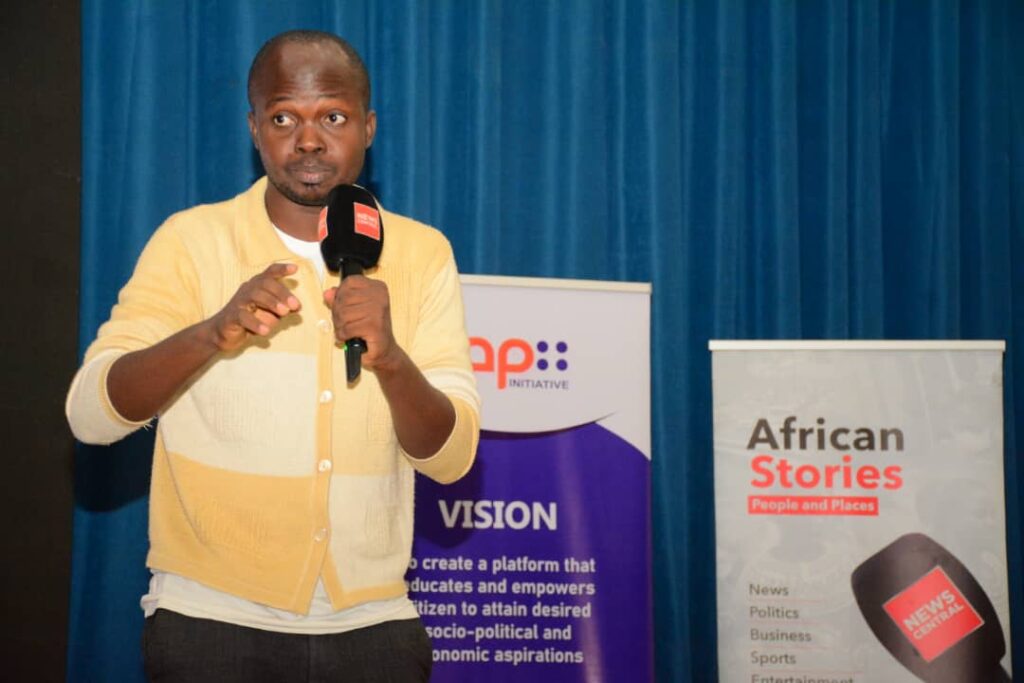
The World Bank recently released a document titled ‘STAYING THE COURSE: PROGRESS AMID PRESSING CHALLENGES’ to encourage the Tinubu government to continue with the wicked reforms that have impoverished and ruined the lives of many Nigerians since May 29, 2023. I am writing this reply to show Nigerians that the report is nothing more than a manifesto for exploitation dressed up in technocratic jargon. It is an insult to the intelligence of Nigerians and a blatant attempt to continue the cycle of exploitation by global financial institutions like the IMF and the World Bank. The authors are nothing but tools of imperialism, promoting the same policies that have kept Nigeria under the thumb of the World Bank’s neoliberal agenda for decades, and I will explain why in a bit.
A narrow focus on economic objectives of the report on stabilizing and growing the economy might have made infinitesimal sense about forty years ago when the Structural Adjustment Program (SAP) and its austerity policies (that affected the masses the most) were introduced in Nigeria. Forty years later, such IMF policies are just abstract explanations with no evidence of practical workability. They do not make any sense. A 2004 article by the IMF about policy reforms in emerging market economies was titled ‘MEANT WELL, TRIED LITTLE, FAILED MUCH!’ Even the IMF admitted that their austerity policies have failed while maintaining their paternalistic and condescending blame-the-victim attitude that is common in imperialist neoliberalism. Another 2016 paper by the IMF admitted that neoliberalism was oversold and it has failed. It is not only sad that these failures from the World Bank are regarded as economic authorities by our political leaders but also more saddening that it is the same policies that have failed for decades that they are handing down to our leaders. Forty years after the introduction of the failed Structural Adjustment Programme masterminded by the same World Bank, the optimism of this report about the long-term benefits of these same reforms is baseless. Nigeria’s socio-economic structure is deeply influenced by neocolonialism and it will not be transformed by the same market-driven policies that have failed to uplift the majority of the population in the past. These reforms are simply a continuation of the same capitalist exploitation that has entrenched poverty in Nigeria for decades.
The report’s suggestion that “sustaining the new direction of policies will continue to open space for the takeoff in investment and jobs which Nigeria urgently needs” in page x is another gross miscalculation. It simply ignores the fact that many Nigerians are already suffering under the weight of rising inflation, driven in part by these very same reforms like subsidy removal. As the report itself admitted on page viii, “the policy changes…were undertaken from an already fragile economic position.” The big question therefore is – what gives the World Bank the moral and intellectual right and the audacity to propose such reforms given these fragile lived realities of the Nigerian populace that the authors claim to be aware of?
Despite the cries of Nigerians that culminated in the recent #EndBadGovernance protests, representatives of this international institution are asking Tinubu and the rest of the Nigerian ruling elite to continue with the suffocating policies of Tinubu for the next 15 years, to echo the suggestions of this report. The authors of this report sit comfortably in their international offices to create policy solutions for a country that people like Indermit Gill (who gave the 15 years timeframe) or Matheus Bueno (who led the team who wrote this report) likely don’t experience firsthand, and push the same neoliberal agenda that enriches foreign investors while impoverishing the vast majority of Nigerians. It was not hard to see how out of touch they were with the socio-political dynamics of Nigeria when one reads the report. The report is overly clinical about abstract and inaccurate data and totally dismissive of the genuine struggles practically faced by everyday Nigerians. It was focused on economic metrics like fiscal deficits and inflation, and it was easy to see a clear detachment of the authors of the report from the human suffering caused by these reforms that they keep suggesting. The language of the report was so cold-hearted. At no point did the authors explicitly acknowledge the harsh realities of increasing poverty, hunger, and social unrest that result from these policies they designed to benefit the financial elite.
An example of the baseless analysis from the document is on page ix where the report started to argue about why “productive jobs are essential for poverty reduction” in Nigeria. This age-long trope that the creation of wage labor is a means of development has been proven to be a lie because most Nigerians are practically overworked in jobs that pay them next to nothing, yet the country has not developed. The limitation of wage labor in the capitalist system is that most of the profits are siphoned to the elite while workers receive very minimal compensation. These market-driven wage labor models have not reduced poverty or created economic stability over the years. When the World Bank encourages Nigeria about “staying the course,” they are encouraging our politicians to put market efficiency over human welfare. They are encouraging Tinubu to put the interest of a minority global billionaire gang over the interests of the majority of Nigerians. It is clear that the World Bank is either poor in imagination or hiding from the truth that any economic model that does not radically redistribute wealth and share resources and profits collectively amongst all Nigerians, will not reduce wealth inequality, achieve social cohesion, or fundamentally change the economy and politics of Nigeria in any way.
Another example of an analysis that lacks basis in fact is the continued assumption that the removal of subsidies, market liberalization, and monetary policy tightening are necessary to stabilize Nigeria’s economy and promote growth. This assumption is fundamentally faulty because it fails to see the deep structural inequalities that these very reforms intensify. The World Bank perpetuates the neoliberal myth that market efficiency will trickle down to improve the lives of the poor. Historical evidence has consistently disproven this. For as long as I have lived in Nigeria, more money for the rich means more money to hoard. It does not mean more money for the poor. It does not trickle down. The rich only get richer while the poor get poorer. The poor bear the brunt of economic shocks (like rising fuel prices and inflation), while elites benefit from financial liberalization and foreign direct investments.
This addiction to macroeconomics is meant to hide the neocolonialist intention of the report. The report’s paternalistic insistence on fiscal discipline, debt reduction, and compliance with international financial markets shows how the Nigerian political economy has been subjugated to the dictates of global capital. This aligns with historical patterns of neo-colonialism in Nigeria. Another example of the hypocrisy of the macroeconomics of this report is the fact that the report briefly acknowledges gender inequalities in the labor market on page 33, but the proposed superficial solutions. The report promoted wage labor as a key poverty reduction strategy, but how does that take care of the unpaid care labor and reproductive labor disproportionately undertaken by women, which is not accounted for in GDP or productivity metrics? This fetishization of women’s participation in wage labor without pulling apart the existing exploitative structures only serves to reproduce gender inequality.
Why I said the authors of this report are nothing but tools in the hands of imperialism is that they maintained their focus on foreign investments and the prioritization of economic policies that aid foreign investments so as to make sure that Nigeria remains dependent on the West. It is an outright lie when the report suggested that the reforms will eventually allow Nigeria to compete internationally. It is as if the report is saying we will get so dependent that we will become independent. That sounds like magic!
Reality is not linear. Economic reforms are not a linear path to stability and growth, especially when these reforms simultaneously aggravate the systemic instability faced by the poor masses. There are many roads to political stability and economic growth, and It is time for the Nigerian people to come together democratically and intellectually to decide the kind of policies we want in our country and break this generational curse that the World Bank and its policy prescriptions represent.

